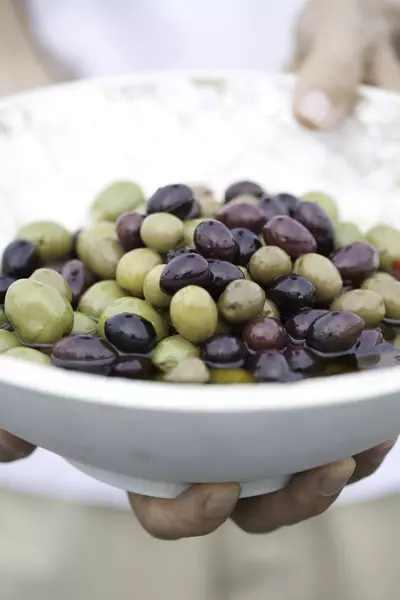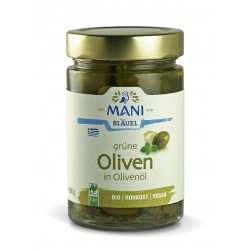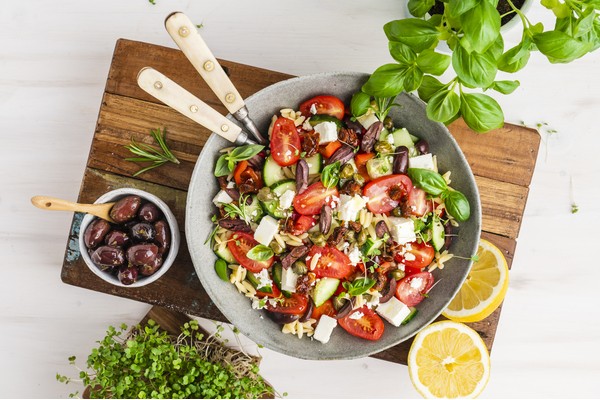When pregnancy cravings yearn for Mediterranean delights, olives make a delicious and light snack that pregnant women can indulge in with a good gut feeling. We will reveal what you need to consider when consuming olives during pregnancy below.
Are olives healthy during pregnancy?
Olives are not only allowed but even desired during pregnancy. They are rich in natural nutrients and vitamins that nourish both the pregnant body and the unborn child. A vital role is played by antioxidants, which protect cells from harmful environmental factors such as UV radiation. With their high content of unsaturated fatty acids and elevated polyphenol levels, olives are renowned in culinary history as ideal suppliers of protective nutrients.
Moreover, Greek stone fruits contain a range of B-vitamins, with the notable presence of B9-vitamins (folic acid). Folic acid intake is of fundamental importance during pregnancy as folate is essential for embryonic cell formation and division. Hence, pregnant women have an increased need for folic acid.

High-quality organic olives provide important vitamins and nutrients during pregnancy.
What should you consider during pregnancy?
When pregnancy cravings for olives arise, indulging in them is permissible. Whether it's a handful of olives as a snack or a crisp Greek salad for lunch, pregnant women should be aware of and follow these basic rules:
Purchasing olives
During pregnancy, fresh olives should be avoided due to the risk of toxoplasmosis transmission. Infection with toxoplasmosis during pregnancy can be passed on to the unborn baby and lead to severe complications. Additionally, when it comes to olives from the fresh counter, it is usually unclear where and how they were processed. Thus, contamination with listeria cannot be ruled out.
On the other hand, marinated olives, preferably from organic cultivation, can be consumed without concerns. Organic olives and organic olive oils not only offer delightful flavors but also ensure all-around safe enjoyment as they are free from pesticide residues and chemical contaminants.
Storage of olives
To prevent the formation of bacteria, opened olive jars or partially consumed packages should be transferred to a tightly sealed container and stored in the refrigerator. In addition to refrigeration, any remaining olives should be consumed within a week.
Stuffed olives
Stuffed olives are only conditionally recommended during pregnancy. Olives filled with raw milk cheese, in particular, pose an increased health risk. Raw milk cheese, which is unpasteurized, can contain listeria, known to cause the infection Listeriosis. While a Listeriosis infection does not pose a significant danger to adults, unborn babies can suffer severe damage in the worst case.
Conclusion
Olives can be enjoyed during pregnancy with a clear conscience. To ensure the quality of olives, the following tips should be followed:
- Choose only marinated organic olives and avoid olives from the fresh counter.
- Never consume olives filled with raw milk cheese.
- Store opened olive packages in the refrigerator in an airtight container.
- In general, listen to your body. It often knows best what is right for you and your baby.
Here's what Julia Bläuel, Managing Director of MANI, has to say about it: "During both of my pregnancies, I had an increased appetite for olives, especially the green ones in olive oil with a slice of lemon inside, which adds a fresh touch. I also enjoyed a great snack - black bread with olive oil, tomatoes, feta cheese, olives, and capers - in between. The great thing was that it was a super healthy snack too, with antioxidants in the oil and especially in the olives. So, you can indulge in snacking with an even better conscience."

















